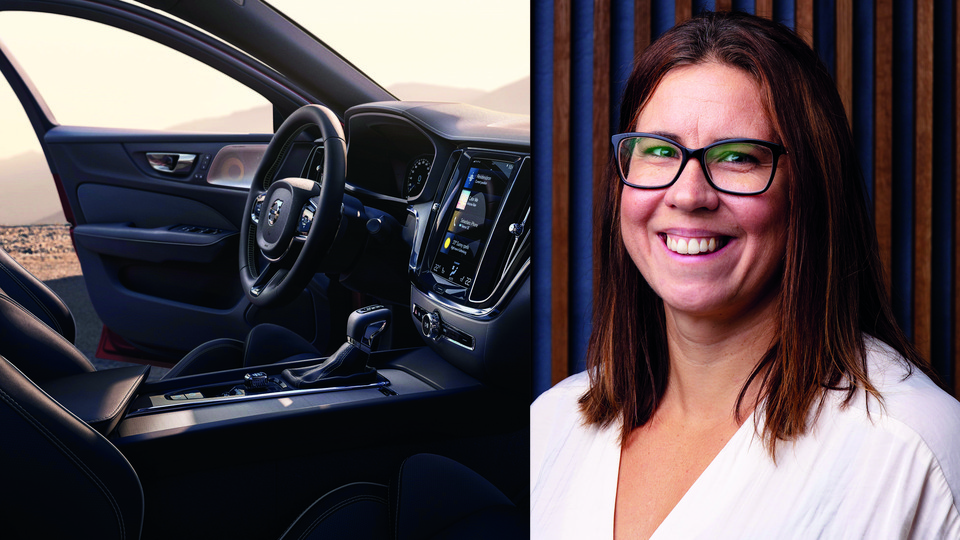
Volvo Cars seeks suitable substitutions for human and planetary safety
Volvo Cars is one of the industry partners in Mistra SafeChem, with a special focus in the case study on the indoor environment in car compartments.
Maria Bernander, technical expert in the Sustainability department focusing on occupant health effects at Volvo Cars, tells more about the work.
Why did Volvo Cars choose to join Mistra SafeChem?
Volvo Cars is a research-intensive company, working with health and environmental subjects. It was natural for us to be part of Mistra SafeChem, both for the work on safe substitution of substances, and the toxicological aspects. The programme provides both a good research platform and results we can use already today.
What are you investigating in the case study?
We look at the connection between the car compartment, the person in it and the environment. The case study is about safe substitution; to make sure we replace materials and substances with something environmentally sustainable which still does the job. The many components in a car and the large airflow makes the task more complicated as substances seep out of the materials. We focus on substances that are regulated by law, endocrine disruptors, and toxicological data.
What do you hope for as a result?
We hope to find suitable substitutions for both human and planetary safety. We also hope the tools from Mistra SafeChem will make it possible to be ahead of the legal requirements and create circular flows.
What progress do you see?
We are testing both the computer and modelling tools. We are investigating several chemicals and assessing potential effective substitution from literature studies. One result we see is that toxicological assessments are lacking for certain substances that we have in our product.
What else is Volvo Cars doing in green chemistry?
We have a long history of working with substances and traceability in international collaborations, as the automobile industry's system IMDS (International material data system). Our internal requirements are stricter than the legal requirements as we want to work proactively in the field. Taking recyclability into account, we want to work with bio-based and circular flows. By 2025, at least 25 per cent of the plastic in each new Volvo model will come from either recycled or bio-based materials. This is in line with our aim to be a circular business by 2040.
Being at the end of the value chain, what needs for chemical development do you see?
We do not want to see it as a chain, we aim for a transition to a circular economy. As we want to enable retained material value, we also focus on what happens to the cars at end of life. To enable closed-loop recycling it is very important to avoid unwanted substances.
-
2024-04-03 | newsFour more years – Mistra SafeChem gets go-ahead for second phase
-
2024-03-28 | newsThe 2023 Mistra SafeChem annual report focuses on more than just one year
-
2024-03-21 | newsSETAC conference on LCA will be held in Gothenburg
-
2024-02-27 | newsMistra SafeChem researchers keynote speakers at large conference on SSbD
-
2024-02-16 | newsThe Mistra SafeChem cosmetics study specially invited to EU workshop on SSbD

